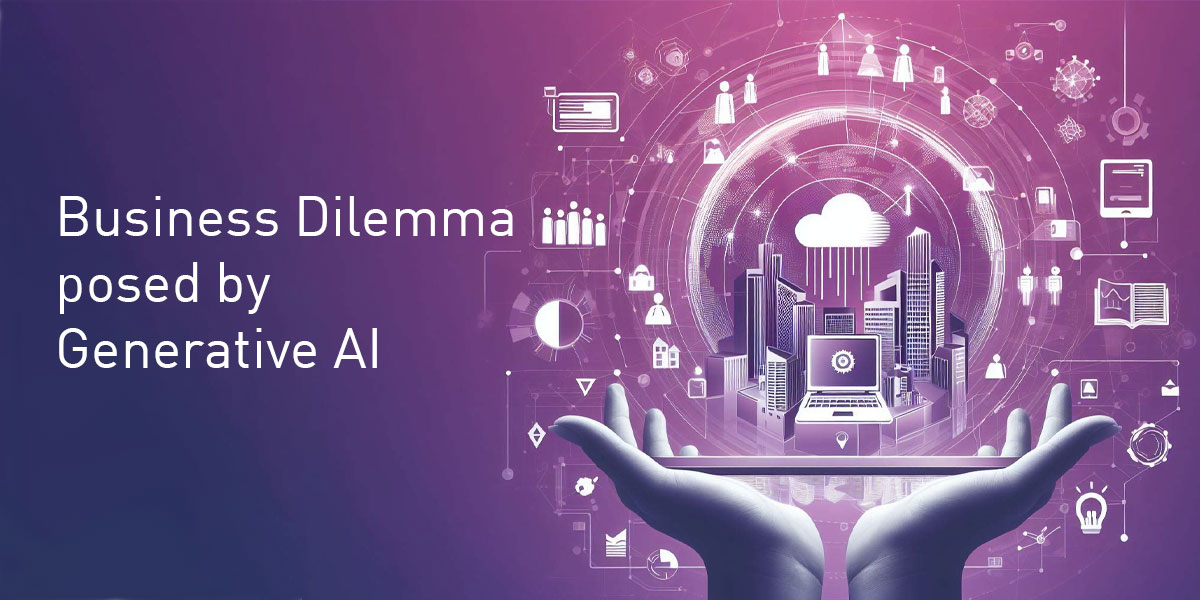Necessary cookies are absolutely essential for the website to function properly. These cookies ensure basic functionalities and security features of the website, anonymously.

New Year's Resolutions: Is My Job Safe in 2024?
That is the question many people want answered as we head into a new year. Last year the shocking capabilities of Large Language Models (LLMs) hit the popular press and the threat or benefits of Artificial Intelligence was everywhere. Hollywood writers went on strike to protect a job that was always meant to be protected from automation. The fear appeared; is no skill safe? Don’t panic just yet. The simplest answer to the question is that your job will probably be fine for the foreseeable future. But your skillset needs urgent revising in 2024.
2024 will be different from other years
Careers are long, spanning around five decades. It goes without saying that in that time period, you will need to pivot, take a few steps back and adjust to the changing environment around you. Nothing stays the same forever and the need to update to stay ahead should go without saying. Perhaps how 2024 differs from previous years is that the process may not be comfortably under your control.
When will new technologies arrive at my office?
When the influential Oxford Team, Carl Benedikt Frey and Michael Osborne, created their mathematical formula to estimate the automatability of different professions back in 2013, before Generative Adversarial Neural Nets were invented, they identified the jobs that in theory could be carried out by a machine. They came to the conclusion that 47% of roles – not whole jobs but roles within jobs – were under threat. That figure assumed a ‘technocratic determinism approach’ to technology adoption. In other words, once a technology has been invented, its adoption and impact on the jobs market is inevitable.
As with many historical inventions, societies, not inventors, decide which technologies get adopted and how quickly. Conversation in 2023 was dominated by technology but there was just as much adoption going on behind the scenes. That’s good news for those who fear you might be too late already.
OpenAI, the not-for-profit that is now very much for-profit LLM, for example, may have huge speculative valuations, but as yet, it hasn’t been widely integrated into systems. And as soon as an LLM API is more widely integrated, the developers will come under pressure to invest and develop a bigger, better system. If, or when, it will reach the tipping point of generating a profit is anyone’s guess.
Then there is the human element. Professor Yann LeCun pointed out on his Twitter feed that it is unsurprising that LLMs are not generating a profit yet. It takes around 15-20 years for a new technology to embed itself and have a noticeable effect on productivity. This is good news. It means there is still time to adapt…but you ignore the coming changes at your peril.
So what can you do today?
The reality is that most of you reading this are doing jobs that will need upskilling and the sooner you make the move, the easier it will be. We all know an elderly person who can’t use technology. Perhaps they decided 10 years ago to take a pass on the world of smartphones when they came in – after all, why would they need to learn that technology when they were already retired? By just 2020, those who had not kept up to date found it challenging to access basic services like medical appointments or the best prices on home insurance. There is nothing challenging about using a smartphone if you keep up with the developments. Those who bought a new model every couple of years learnt to use the pre-installed apps, then private apps, then payment services and so on probably didn’t even notice they were learning as the steps were so incremental. But if you avoid the incremental stages, you're going to find things hard.
So with AI technologies today, if you start small, you will be fine 10 years from now. And what if the worst does happen? Could that professional certificate you have on your wall, the one that you trained for years to pass and which guarantees you a certain level of income, become worthless? I haven’t seen much to suggest that will happen entirely, but if you continue to upskill in data analytics, I guarantee you’ll already have a foot in a booming new professional career. Learn analytics today, and you will be ready for that amazing job of tomorrow that doesn’t exist yet.
How the IoA can help
Change is coming. At the IoA, we have a range of training pathways to support you in your 2024 New Year’s Resolutions, whether you just want to learn how to work alongside a machine or if you’re interested in learning to run analytics yourself. Make 2024 the year you start making those incremental adjustments to the way that you work. The ‘You’ in 2025 will thank you for it!






